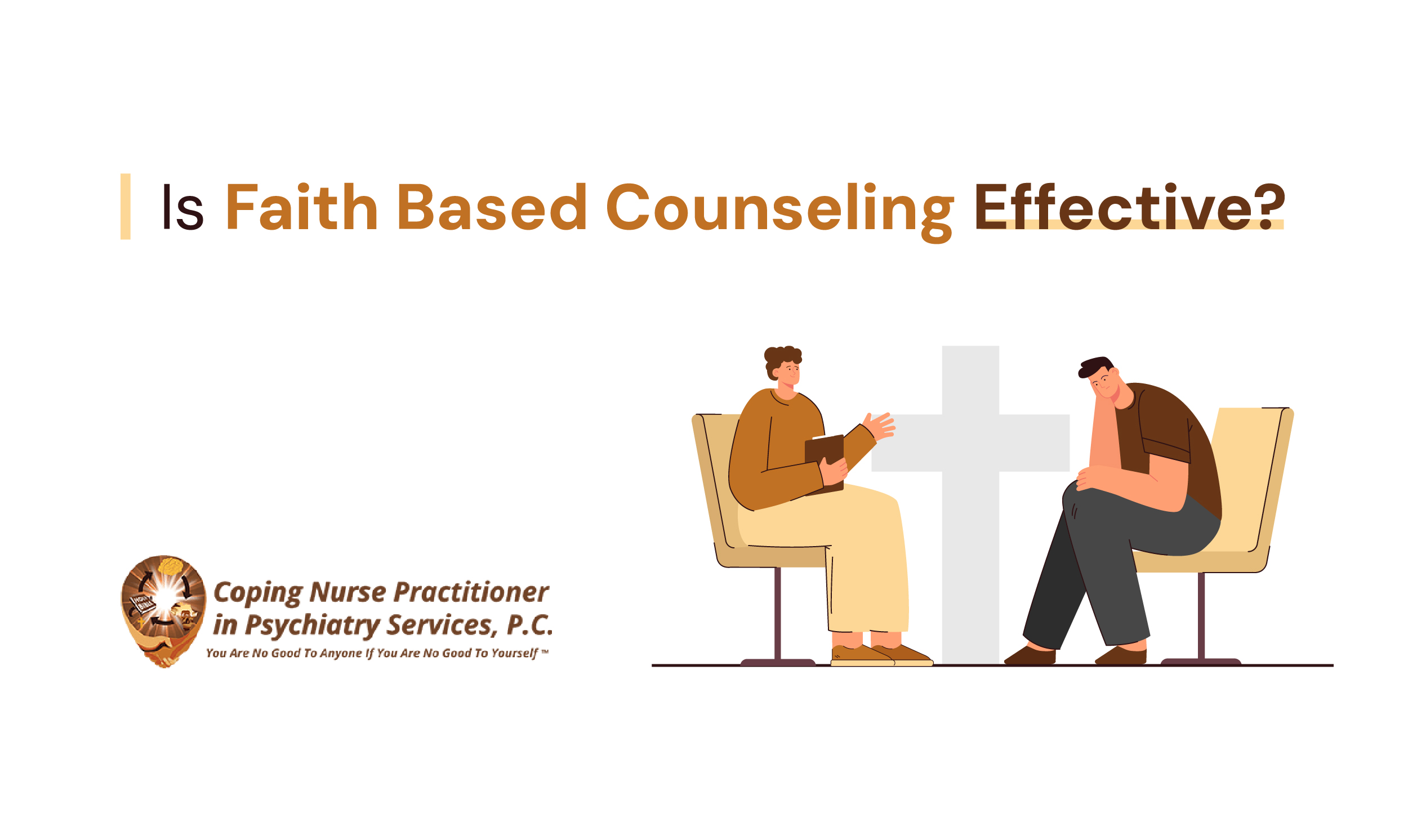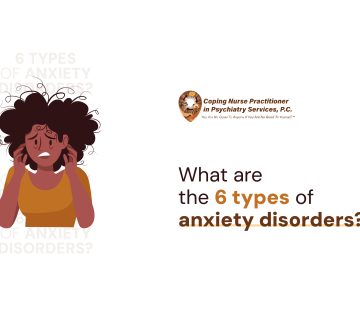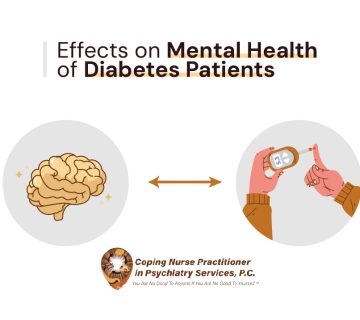Faith can be a source of strength and support during difficult times.
Christian counseling recognizes this, and provides a safe environment for Christians to discuss emotional and relationship issues with counselors who understand their faith, beliefs and values.
The question arises: Is faith-based christian counseling effective?
For many, it can be soothing for the mind and soul.
With respectful acknowledgement of spiritual beliefs, Dr. Vansiea guides her patients through their struggles, providing services that seek to heal and integrate one’s spirituality with their inner peace.
What Is Faith Based Counseling?
Faith based counseling combines traditional psychological principles with spiritual and religious elements.
It differs from secular counseling in that it shares the therapeutic process through the lens of faith.
It draws on the client’s belief system as a source of strength and guidance.
This form of counseling can be provided by certified professionals who also deeply understand their faith’s doctrines. They create a therapy space that reflects clients’ spiritual values.
Faith-based counseling gives you a safe space to discuss faith, prayer, and scriptures as you navigate life.
When the question surfaces, “How do I find a Christian therapist?” know that you are not alone in this search.
Dr. Judy E. Vansiea provides compassionate and nonjudgmental faith-based Christian counseling.
To discover more about the benefits of faith-based counseling, please book a virtual or in-person appointment.
To begin this process, simply reach out through our contact page for a supportive and confidential session.
What is Christian Counseling?
Christian counseling is a specialized form of faith-based counseling that consciously incorporates Christian beliefs and biblical teachings into the counseling process.
It emphasizes living by Christian principles and usually involves reading scripture, praying, and practicing spiritual disciplines based on the Christian faith.
Why Is Faith Based Counseling Important?
- Faith based counseling helps people understand their religion better. Talking through doubts is easier when the counselor understands religion.
- Counselors in this field often pray, meditate, and encourage clients to find wisdom and strength from God. They do not just listen and respond with generic advice; they feel with you and bring patience to every session.
- A faith-based therapist can provide compassion and understanding, helping clients through the highs and lows of life.
- Faith-based counseling resonates deeply with those who value spirituality. It can provide a meaningful experience that speaks directly to their soul.
- It gives hope during tough times and affirms that God is at work in the healing process.
- It combines mental wellness with spiritual beliefs and creates harmony and a sense of wholeness.
- It embraces the nature of human experience and provides care focusing on every aspect – mind, body, and spirit.
Is Faith Based Christian Counseling Effective? – Benefits
Is faith based counseling effective? For those who keep their spiritual beliefs at the center of their lives, faith-based counseling can be incredibly helpful.
Some important benefits of faith-based counseling include:
- It considers spiritual and religious needs and mental/emotional health holistically.
- It draws on clients’ faith, which can provide meaning, purpose, and coping strategies during difficult times.
- Clients feel understood and at ease discussing religious/spiritual struggles with a counselor of the same faith.
- It validates the positive role of biblical and spirituality in well-being rather than viewing it as problematic or in need of reduction.
- Incorporating meaningful scriptures, stories, and concepts familiar to clients’ traditions can increase relevance and efficacy.
- It links clients with a faith community’s social/emotional support during and after counseling.
- Services are relevant to and affirming of clients’ religiously informed perspectives on health, life, and justice.
- Addressing both mental health needs and existential/spiritual growth leads to more comprehensive change.
Faith-Based Counseling vs Psychotherapy
| Faith-Based Christian Counseling |
Psychotherapy |
| It’s grounded in religious doctrines and spiritual beliefs. | It’s based on psychological theories and therapeutic methods. |
| Provides spiritual practices and guidance. | Focuses on cognitive and emotional processes. |
| Might share the client’s religious beliefs. | Generally secular and diverse in belief systems. |
| Based on spiritual growth and psychological wellness. | Mainly focuses on psychological wellness. |
| Can involve prayer, meditation, and scripture study. | Involves cognitive-behavioral techniques, talk therapy, etc. |
Types of Christian Counseling
Types of Christian-based counseling include:
1. Christian counseling with psychotherapy.
Integrating Christian counseling into traditional psychotherapy creates a cohesive environment for clients to work through psychological issues.
This healing approach honors the whole person and recognizes the interconnectivity of emotional health and spiritual wellness.
For practitioners, this requires deep respect for the client’s faith and the use of evidence-based psychological treatment.
2. Bible counseling.
Bible counseling uses only the scriptures to help people.
The counselor looks at issues through what the Bible teaches.
They provide solutions by showing how Biblical truths can be applied to specific issues.
Counselors apply verses directly to a person’s struggles. Their guidance aims to make people wise according to religion.
3. Christian psychology.
Christian psychology integrates the Christian faith into traditional psychology.
It is grounded in the view that understanding human psychology is enriched by incorporating spiritual dimensions of experience.
4. Pastoral counseling.
Ordained religious leaders provide pastoral counseling.
Ministers help with personal or family issues while also giving spiritual guidance. They use listening skills and Biblical advice specific to each person.
Counselors aim to support emotional health and strengthen faith through difficult times.
The church environment provides community throughout the counseling process.
Core Concepts of Faith Based Christian Counseling
Is faith based counseling effective? Yes, it is effective in the long run and is the surest way to recover from mental health issues.
Counselors who are faith-based recognize the Bible and Christian teachings can help people make sense of their lives and guide their actions.
Counselors understand faith can help people get through difficult times.
Moreover, they know people might have problems involving faith, family, relationships, sexuality, and other parts of their lives.
In your search for “faith-based counseling near me”, consider Coping Nurse Practitioner in Psychiatry Services.
Dr. Vansiea guides clients toward wholeness that deeply respects the intertwined nature of mental and spiritual health.
Final Word
Is faith based christian counseling effective? Yes, it is effective and beneficial for those who believe in spirituality and healing in God.
It is effective as it connects you to your Christian faith and peacefully heals your soul.
Faith-based cognitive therapies are as effective as secular therapies for issues like depression and anxiety.
Likewise, for conditions like substance abuse, faith-based treatments have shown some positive success integrated with self help groups such as AA which are based on Christian principles.
To get expert help, please get in touch with Judy E. Vansiea, DNP, MA, MS, APRN, NPP. She specializes in faith-based Christian counseling to help you overcome mental health issues.
Feel free to contact us at Coping Nurse Practitioner in Psychiatry Services or visit us at 405 RXR Plaza, Uniondale, NY 11556.
FAQs
What does faith based counseling mean?
Faith-based counseling, also known as spiritual or religious counseling, is a form of therapy that combines psychological principles with spiritual beliefs.
What is the most effective counseling method?
According to modern research, “evidence-based” methods like Cognitive Behavioral Therapy customized to clients can effectively treat many issues.
Finding the right fit is important, whether CBT or faith-based; it all depends on your choice.
Why is faith important in counseling?
Spirituality provides meaning, purpose, and coping strategies for some.
Integrating faith affirms clients’ worldviews and values for effective, holistic care.
What should be avoided when a therapist integrates religion and spirituality into treatment?
Focus on understanding the client’s perspective without judgment and apply spiritual concepts respectfully based on the client’s faith and self-described needs.




